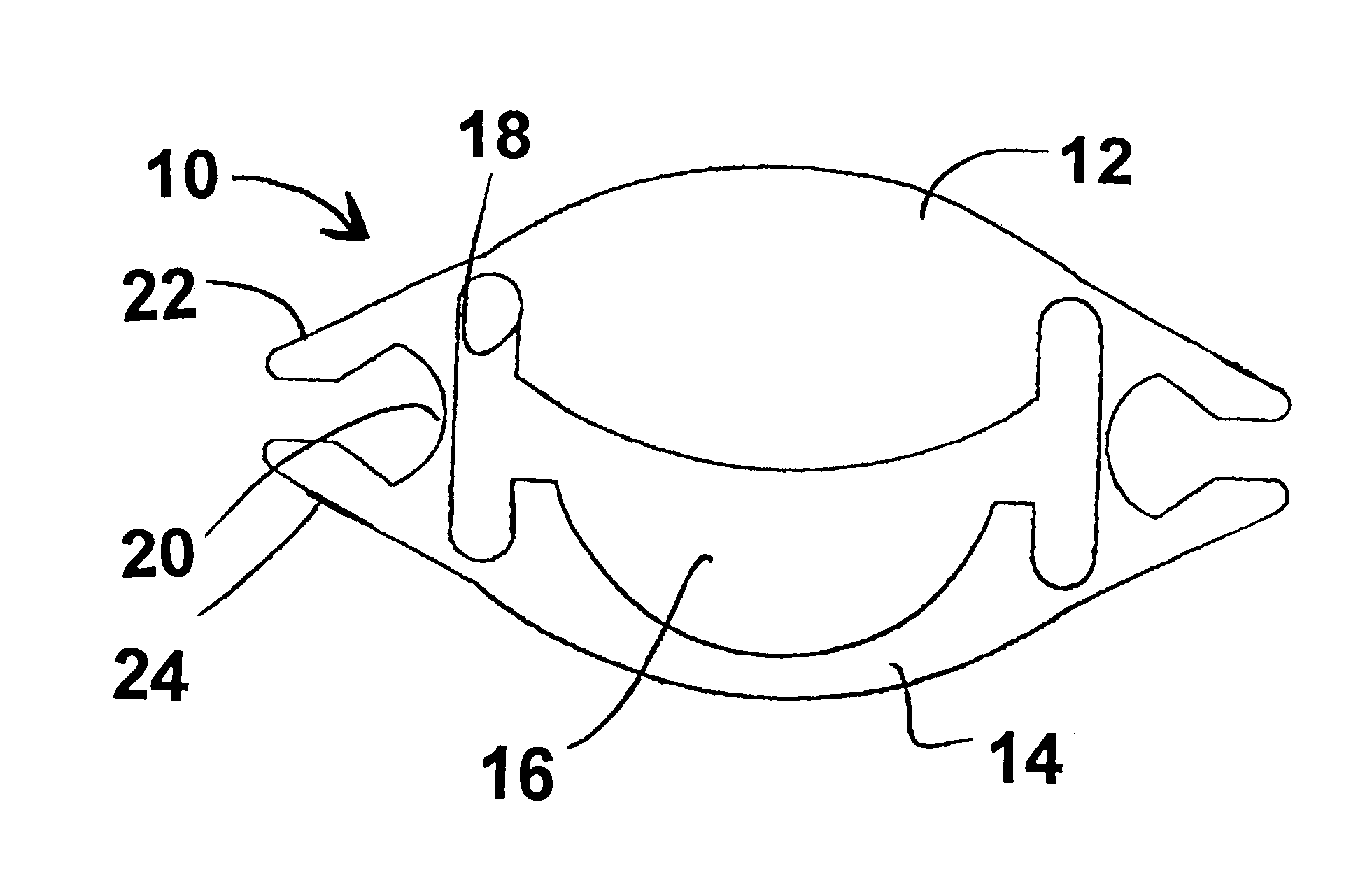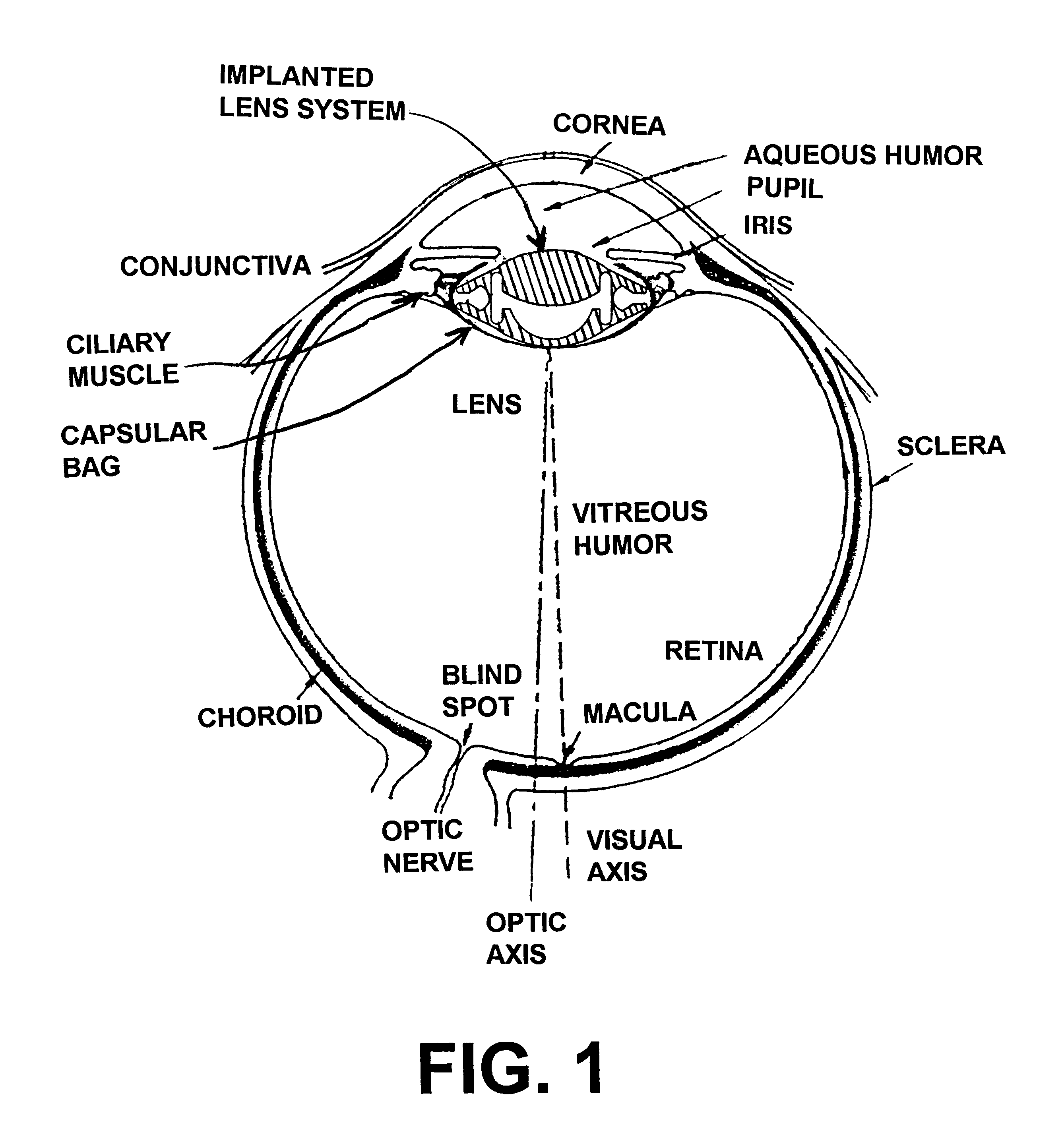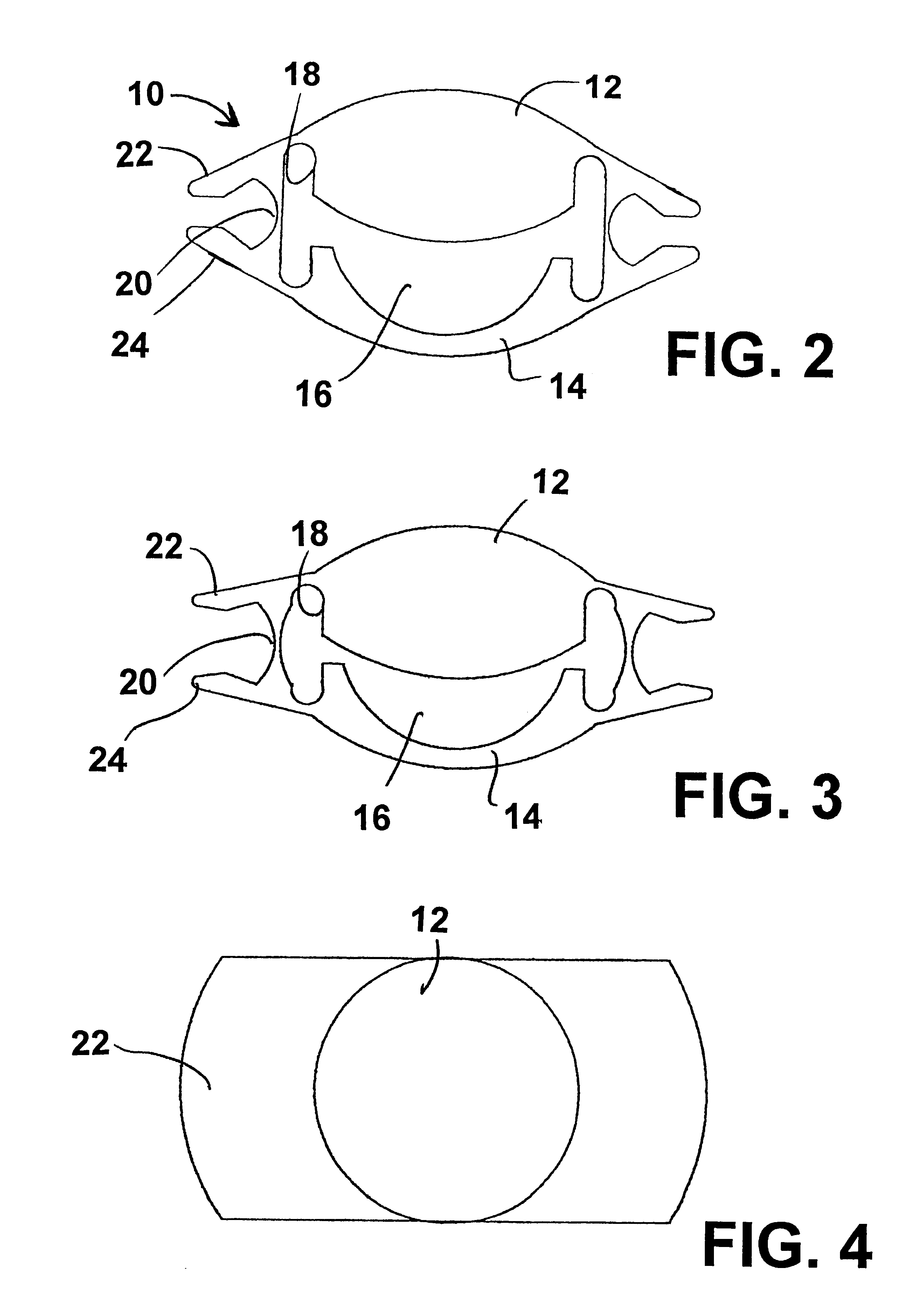High gain wide range accommodating intraocular lens for implant into the capsular bag
a wide-range, intraocular lens technology, applied in the field of intraocular lens implants, can solve the problems of low gain of simple convex lens, large distance the lens must be actually moved within the eye to achieve a large focal length change, and difficult at best to achieve accommodation for near vision. , to achieve the effect of large range adjustable focal length
- Summary
- Abstract
- Description
- Claims
- Application Information
AI Technical Summary
Benefits of technology
Problems solved by technology
Method used
Image
Examples
second embodiment
the invention illustrated in FIGS. 5 and 6, operates in essentially the same way as the first embodiment of FIGS. 2 through 4. The principal difference resides in the mechanism to control the distance between the lenses. Specifically, a lens system 30 comprises a positive lens 32 and a negative lens 34 separated by a chamber 36. The spacing between the lenses 32 and 34 is controlled by haptics 38, 40, 42 and 44. Each such haptic is attached to a lens by means of a flex interface (i.e., interface 48 for lens 32 and interface 52 for lens 34). Each flex interface provides a bend point such as point 46. A fulcrum 50 on each side of lenses 32 and 34 provides a pivot for compression of haptics 38, 40, 42 and 44 which increases the distance between lenses 32 and 34 analogous to FIG. 2 for the first embodiment, or permits a relaxation of the haptics, which decreases the distance between the lenses analogous to FIG. 3 of the first embodiment.
In another embodiment shown in FIGS. 7 and 8, a le...
PUM
 Login to View More
Login to View More Abstract
Description
Claims
Application Information
 Login to View More
Login to View More - R&D
- Intellectual Property
- Life Sciences
- Materials
- Tech Scout
- Unparalleled Data Quality
- Higher Quality Content
- 60% Fewer Hallucinations
Browse by: Latest US Patents, China's latest patents, Technical Efficacy Thesaurus, Application Domain, Technology Topic, Popular Technical Reports.
© 2025 PatSnap. All rights reserved.Legal|Privacy policy|Modern Slavery Act Transparency Statement|Sitemap|About US| Contact US: help@patsnap.com



